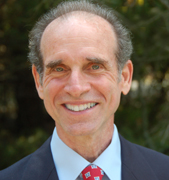
I wonder why, if the president thinks that “it’s good we’re having this discussion,” he waited for a whistleblower to bring the issue to national attention. My suspicion is that he had been intimidated by the unelected powers behind what some call “the surveillance state.”
Be that as it may, I’d like the president to lead the way now. It should be part of presidential leadership to see that the issues are aired in a way that enables the American people to come to a considered judgment on the right trade-off between security and liberty in this new age we’ve entered.
Profound technological changes have compelled us to rethink the proper boundaries of privacy. Email, internet and other technology changed the ways ordinary Americans communicate with each other and their world. Technology, such as the government’s Prism program, has enlarged the government’s means of surveillance.
It’s a new game. We need new rules.
This isn’t the first time technology has required working out new rules: The invention of the telephone led to the extension of our Fourth Amendment protections against “unreasonable search” to cover phone conversations. The government, with its police power, cannot tap our phones unless a judge issues a warrant.
The government must “show cause” to an independent judiciary before it’s allowed to intrude into those parts of people’s lives where they have “a reasonable expectation of privacy.”
Are these standards being met by NSA’s huge data-gathering programs?
In 1978, under the Foreign Intelligence Surveillance Act (FISA), a special court was set up to issue such warrants. George W. Bush’s administration violated the law by by-passing that court. Under President Obama, the government has obeyed the law and obtained approval for its surveillance from the FISA court. Nonetheless, there are reasons to suspect that this judicial oversight is inadequate.
The FISA court appears to be a rubber stamp. Not one application has been denied in the past four years, out of thousands of requests, according to reports collected by the Federation of American Scientists. Is there anywhere else in American law where the judiciary is so compliant? How rigorously does the FISA court look into the government’s claims about the need for surveillance, and how does that compare with the usual standards for granting warrants?
Similar questions can be raised about congressional oversight. It is not clear that the members of Congress whose job it is to “oversee” what the executive branch is doing in the realm of intelligence-gathering have more than a sketchy idea of what’s going on.
Our Founders learned from history to be suspicious of unchecked power, and our own history –going back to the Watergate era—is that “national security” and secrecy can be cloaks under which power gets abused. From Nazi Germany and Stalinist Russia, we know that tyranny and the disappearance of any “reasonable expectation of privacy” go together
Of course, some specifics about intelligence gathering need to be kept secret for national security. But the “debate” that President Obama said he welcomed can be conducted without dealing with highly classified cases. It should be possible for citizens to judge the basic principles we want to be applied in our name. And it’s our right to be provided the knowledge on which to base such judgment. It’s our security that the government is protecting, and it’s our privacy that’s being eroded.
Even if everything the government is doing now is proper, we need to make sure that today’s practices don’t lay the foundation for some future police state to assault our privacy and our liberties. Some workers in the surveillance programs have revealed that they’ve already chosen on their own to spy on individuals. The mechanisms now in place can be abused.
So yes, let’s have that debate. Get it going, Mr. President.
Let’s have it televised.
I propose that you choose two high-powered advocates, one for each side of the debate. For the side advocating greater privacy protections, a good choice might be Glenn Greenwald, the constitutional attorney turned journalist who helped to break the NSA story. Presumably, Mr. President, you know someone who can argue that we’re already doing what we should be doing.
But one thing we should be doing is having that “discussion,” of which you spoke. That’s not happening yet.
Andy Schmookler, recently the Democratic nominee for Congress from Virginia’s 6th District, is an award-winning author, political commentator, radio talk-show host, and teacher. His books include The Parable of the Tribes: The Problem of Power in Social Evolution. He lives in Shenandoah County.










